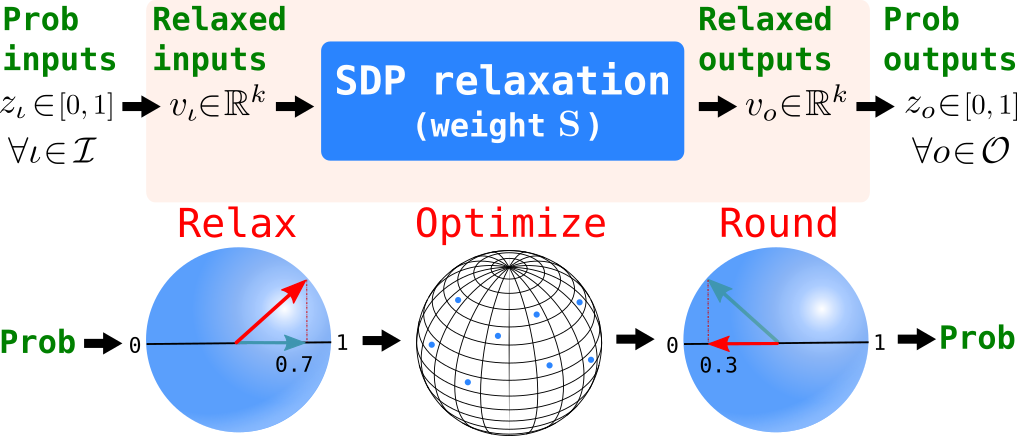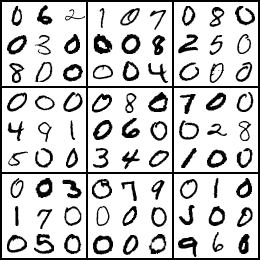Bridging deep learning and logical reasoning using a differentiable satisfiability solver.
This repository contains the source code to reproduce the experiments in the ICML 2019 paper SATNet: Bridging deep learning and logical reasoning using a differentiable satisfiability solver by Po-Wei Wang, Priya L. Donti, Bryan Wilder, and J. Zico Kolter.
SATNet is a differentiable (smoothed) maximum satisfiability (MAXSAT) solver that can be integrated into the loop of larger deep learning systems. This (approximate) solver is based upon a fast coordinate descent approach to solving the semidefinite program (SDP) associated with the MAXSAT problem.
A SATNet layer takes as input the discrete or probabilistic assignments of known MAXSAT variables, and outputs guesses for the assignments of unknown variables via a MAXSAT SDP relaxation with weights S. A schematic depicting the forward pass of this layer is shown below. To obtain the backward pass, we analytically differentiate through the SDP relaxation (see the paper for more details).
We show that by integrating SATNet into end-to-end learning systems, we can learn the logical structure of challenging problems in a minimally supervised fashion. In particular, we show that we can:
- Learn the parity function using single-bit supervision (a traditionally hard task for deep networks)
- Learn how to play 9×9 Sudoku (original and permuted) solely from examples.
- Solve a "visual Sudoku" problem that maps images of Sudoku puzzles to their associated logical solutions. (A sample "visual Sudoku" input is shown below.)
pip install satnetgit clone https://github.com/locuslab/SATNet
cd SATNet && python setup.py installconda install -c pytorch tqdm
cd docker
sh ./build.sh
sh ./run.shJupyter notebook and Google Colab
The Sudoku dataset and Parity dataset can be downloaded via
wget -cq powei.tw/sudoku.zip && unzip -qq sudoku.zip
wget -cq powei.tw/parity.zip && unzip -qq parity.zippython exps/sudoku.py
python exps/sudoku.py --perm
python exps/sudoku.py --mnist --batchSz=50python exps/parity.py --seq=20
python exps/parity.py --seq=40


